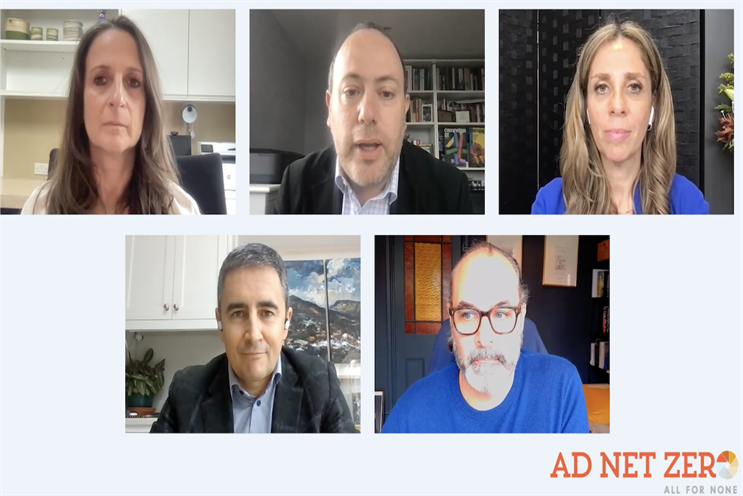
The advertising sector must use its power to “change the way people think, feel and act” to help them make environmentally sustainable consumer choices, industry leaders have said at a climate change summit.
Agency, brand and media leaders said adland must harness its storytelling skills to promote sustainable ways of living – a move that represents “the next big frontier” after many companies have already started reducing their own carbon footprint.
The sector must also ensure ads are not appearing alongside climate misinformation online, they said, speaking at the Advertising Association’s Ad Net Zero summit, which is running on 3 and 4 November alongside COP26.
Consumers say environmental sustainability is an important issue for them, but many do not know what steps to take, meaning advertising can help fill the information gap, the industry chiefs added.
Facebook’s EMEA vice-president Nicola Mendelsohn, said there is “a lot” the advertising sector can do to address climate change.
As part of a panel debate on advertising’s role in sustainability, she said: “History has shown that advertising can and does shift consumer behaviour.
“There’s absolutely no reason marketing can’t do this and support a more sustainable way of life.”
Debbie Klein, Sky’s group chief marketing, corporate affairs and people officer, agreed: “The next big frontier, we think, will be thinking not just about how we reduce our own carbon footprint... but how we drive that behaviour change in others?”
She added: “Our industry can be hugely influential in so many ways – we reach millions, we are creative storytellers.”
Dentsu UK’s media chief executive Hamish Nicklin acknowledged adland’s traditional focus was on driving consumption, but stressed the sector wasn’t alone in being responsible for the associated carbon emissions.
The solution for adland is in harnessing the skills used to sell products and services and deploying them to help consumers change their habits, he said.
“The role that we’ve played and the skills we’ve got that have stimulated that demand and got people to buy stuff and to change their behaviour is a critical part of the solution too.
“Our power is not just in our ability to sell stuff but our ability to change the way people think, feel and act."
Sky’s behavioural insights team has carried out work to predict the best way to “nudge” consumers into making choices that are less carbon intensive, Klein said.
“People are really concerned – they want to know what to do and how to do it, they feel overwhelmed by choice and are actually unclear on what actions will make a difference.”
But when advertisers and media are planning their work, they should be aware “people don’t want to be lectured, they don’t want scaremongering, they want normal, familiar storytelling.”
In a separate panel event at the summit, looking at how marketing teams can help address climate change, PepsiCo global vice-president of marketing Ana Maria Henao also said consumers need advertisers to help them.
“We recognise that for consumers sustainability is one of the main topics... that is close to their hearts – particularly younger generations have been very engaged on this agenda.
“But what we have found for consumers, sometimes it is difficult to know where to start... That’s where the brands have the opportunity to use their platforms that they have to amplify the message.”
More widely, the advertising sector needs to help provide audiences with accurate information about the environment, which includes ensuring ads do not appear beside articles that contradict scientific evidence, according to Google vice-president and managing director in the UK and Ireland Ronan Harris.
“Making sure that people have the right information to educate themselves [is important]," he said, speaking as part of the advertising panel debate. "Without that they’re not going to be able to make good choices.
“We want to enable a conversation across our platforms on this. We want people to be able to get information from diverse sources, but we certainly don’t want people out there prompting and getting rewarded from active misinformation.
"We’ve changed our policies to make sure we prohibit ads across any of the content that contradicts well-established scientific consensus on the existence or causes of climate change.”
The AA’s two-day summit is running from 3 to 4 November online and in Glasgow to mark the first year of Ad Net Zero, the industry’s initiative aiming to reach net zero carbon emissions by 2030.


.jpg)


.jpg)